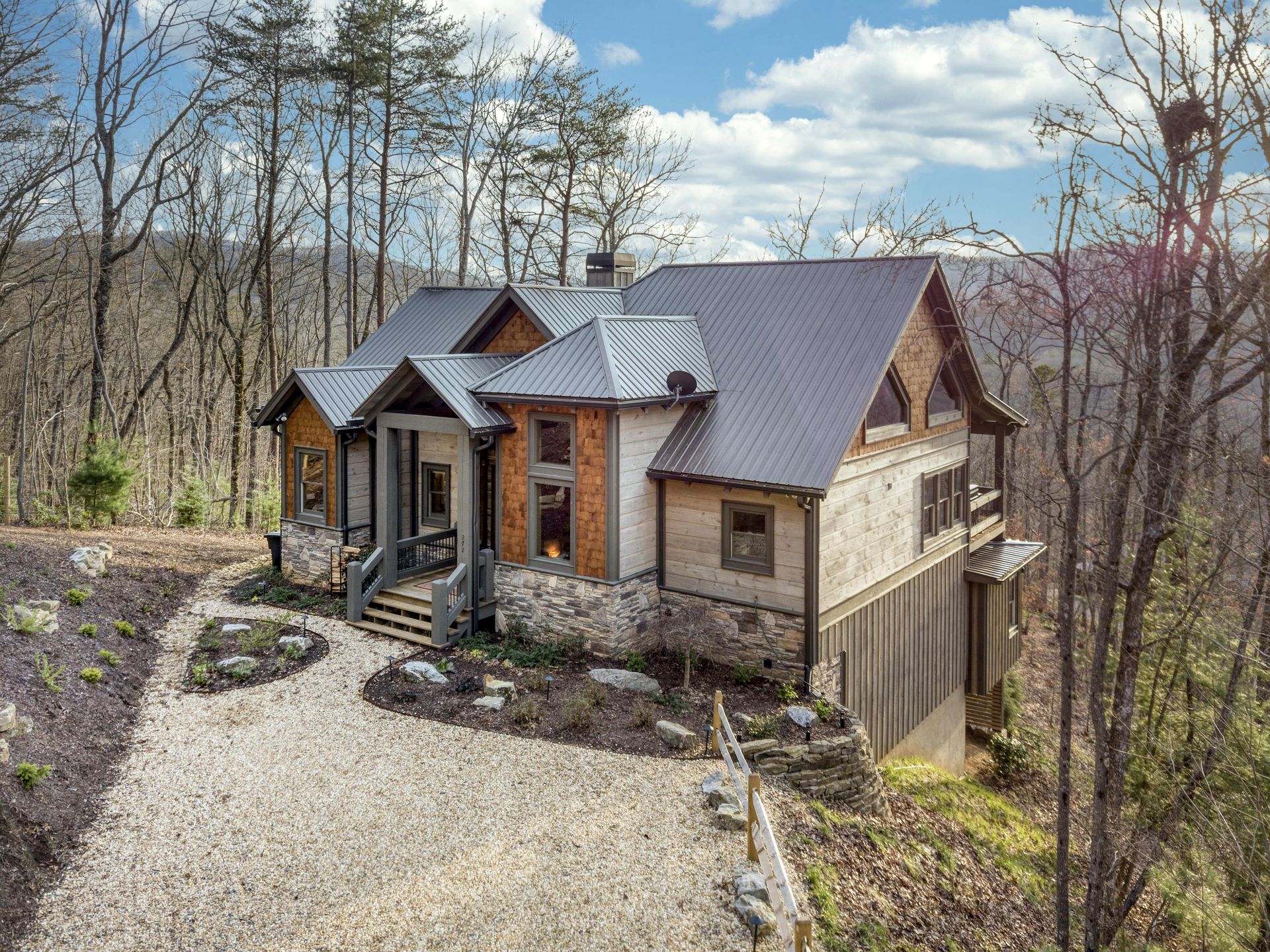NEWS
The Best Luxury Real Estate in Miami Florida
.
Scandinavian Dream
Looking to unwind, recharge and relax? Looking for a place that brings you the beauty of nature? We've got just what you're looking for. Come and discover
NEWS

Prime Waterfront Location Located at 16 Bayview Boulevard , Villa Lola offers the rare combination of serene water views, direct proximity to the ocean, and a peaceful residential setting — all just minutes away from beaches, dining, shopping, and boating adventures. Imagine waking up each morning to the gentle sound of the water, sipping coffee on your private patio, and spending your afternoons relaxing by your very own private pool . Sophisticated Living, Inside and Out 🛌 5 beds 🛁 3 bathrooms 🔥 Private outdoor pool and BBQ grill for relaxing or entertaining 🧺 Beach essentials and backyard garden to enjoy the Florida sunshine 🚀 Smart home safety features including smoke and carbon monoxide detectors Turnkey and Ready for You Whether you plan to move in, rent it seasonally, or list it as a short-term rental, Villa Lola is turnkey-ready. With free on-premises and street parking , a private entrance, and ample storage space, it’s a rare opportunity to own a slice of waterfront luxury in a sought-after neighborhood. Want to See More? Don’t miss the chance to make Villa Lola your next great investment or forever home. 👉 Contact us today to schedule a private showing or request the full investment brochure

Now available across Fort Lauderdale, Miami, Fort Myers, and Naples , HydraMed delivers hospital-grade IV hydration and vitamin therapy directly to your doorstep. No need to travel to a clinic or IV lounge. Whether you're staying in one of our luxury villas or enjoying a high-end getaway in the region, you can now enjoy the benefits of IV therapy. What Is HydraMed? HydraMed is a mobile concierge IV therapy company offering 30+ personalized IV treatments administered by licensed nurses—all in the comfort of your home, hotel, or vacation rental. From boosting energy to alleviating hangovers and food poisoning, HydraMed’s vitamin-rich drips are designed to help you feel better, faster. Their Fort Lauderdale team arrives within 45 minutes, offering flexible, discreet, and highly effective wellness treatments wherever you are. Top Treatments Available 💧 Myers’ Cocktail (Banana Bag) The ultimate all-rounder. This powerful blend of B vitamins, vitamin C, magnesium, and calcium is perfect for immune support, energy boosts, and recovery. 🍸 Hangover IV A go-to after a night out. Rehydrate fast, combat nausea, and restore clarity—ideal after exploring Fort Lauderdale’s vibrant nightlife or cocktails by the marina. ⚡ Energy Boost IV For busy professionals or active vacationers needing to power through a packed day of meetings or excursions. 🧠 NAD+ IV Therapy Enhances mental clarity, cellular function, and supports healthy aging. Loved by athletes and biohackers alike. 🌿 Cold & Flu Rescue / Food Poisoning Relief Feel better faster with targeted treatments that deliver high-dose vitamin C, hydration, and anti-nausea support. 🤰 Pregnancy IV Safe, soothing hydration that helps ease morning sickness and pregnancy-related fatigue—customized for expecting mothers. Why It’s a Perfect Fit for VIAC Guests Our guests choose VIAC for convenience, comfort, and luxury—and HydraMed delivers just that. Whether you’re staying near Victoria Park, Coral Ridge, Wilton Manors, or the Intracoastal, HydraMed comes to you—quickly, discreetly, and professionally. And now, VIAC Capital guests receive exclusive access to discounted mobile IV therapy services: 💎 Exclusive Offer for VIAC Guests 💎 20% off any IV therapy service 25% off services over $399 Automatically applied with discount code VIAC Fort Lauderdale: https://hydramed.com/areas-served/florida/fort-lauderdale-broward/ Miami: https://hydramed.com/areas-served/florida/miami/ Fort Myers: https://hydramed.com/areas-served/florida/fort-myers/ Naples: https://hydramed.com/areas-served/florida/naples/ Ready to Elevate Your Wellness? Whether you're jet-lagged, under the weather, or simply optimizing your wellness, HydraMed’s mobile IV therapy brings medical-grade care directly to you. Skip the waiting rooms, skip the guesswork, and get back to enjoying your stay—refreshed, revitalized, and ready for more. Hydration. Health. Delivered.

The Experience: Where Luxury Meets Serenity From the moment you arrive at 272 Heights Overlook , you're greeted by sweeping views of the Cohutta Mountains , unmatched privacy, and timeless charm. Built in 2016, the property effortlessly blends rustic style with upscale finishes—think custom woodwork, exposed beams, and thoughtfully curated cozy touches throughout. Highlights That Make This Home Exceptional 🛌 4 spacious bedrooms, including a cozy bunk room perfect for hosting guests 🛁 4 full bathrooms, featuring spa-style amenities 🔥 Indoor sauna for total relaxation after hiking the nearby trails 🌅 Covered jacuzzi with panoramic sunset views 🎮 Game room and multiple gathering spaces 🌲 Ultra-private setting in a gated community 🧺 Turn-key: sold fully furnished with high-quality decor This isn’t just a cabin—it’s a thoughtfully designed experience. Imagine soaking in the jacuzzi as the sky turns gold, unwinding in the sauna after a day in nature, or gathering with family around the fireplace in the winter months. A Proven Income Property Currently managed by a seasoned Superhost property manager , the home has built a stellar 5-star reputation on short-term rental platforms. Guests love the secluded location, upscale amenities, and the peaceful atmosphere that’s perfect for couples, families, and retreats. With strong short-term rental demand in the North Georgia mountains and an estimated monthly payment of $8,371 , this property is an excellent choice for investors seeking a low-maintenance, high-ROI asset. Ideal Location Located just 90 minutes from Atlanta , Cherry Log is one of North Georgia’s hidden gems—known for its scenic hiking trails, waterfalls, and year-round tourism. Whether you're searching for a second home, a luxury rental, or a full-time mountain lifestyle, this address offers it all. Ready to Make This Mountain Dream Yours? Don’t miss the opportunity to own “The Secret of Blue Ridge.” Whether you’re looking for a peaceful escape or a powerful investment, this home is designed to deliver both. 📍272 Heights Overlook, Cherry Log, GA 30522 💰Price: $1,390,000 📐Size: 4,526 sqft | 4 Bed | 4 Bath 🏡 HOA: $92/month 👉 Contact us today to schedule a private showing or request the full investment brochure

1. Create a “Wow” Moment at the Entrance First impressions matter. Whether guests arrive through a grand foyer or a simple front door, your entryway should instantly signal luxury. Think statement lighting, curated artwork, or a sleek console with a fresh floral arrangement. It’s about setting the tone: this stay is something special. 2. Design with Instagram in Mind Travelers love sharing beautiful spaces. Incorporate photo-worthy design elements like bold accent walls, unique furniture pieces, or styled nooks with cozy lighting. These "Instagrammable" touches not only delight guests but also serve as free marketing—every snap shared online amplifies your property's visibility. 3. Prioritize Hotel-Level Comfort Luxury isn't just visual—it's also tactile. High-thread-count linens, cloud-like mattresses, blackout curtains, and plush towels are essentials. Add a spa-style bathroom with premium toiletries and rainfall showers, and you’ll give guests that boutique hotel feel, with the added warmth of a home. 4. Use a Neutral Palette with Signature Touches Timeless, neutral tones (whites, beiges, soft grays) create a calming environment that appeals to a wide audience. Then layer in bold accents—like a deep green velvet sofa, sculptural lighting, or textured throw pillows—to give your space personality without overwhelming it. Consistency across rooms enhances the overall sense of luxury. 5. Design for Functionality—and Local Flair Luxury doesn’t mean overdecorated. Guests value intuitive, functional layouts with smart storage, quality appliances, and seamless indoor-outdoor flow. Bonus points if your design nods to the destination—think beach-chic in Miami, or modern tropical in Fort Lauderdale. These local cues create a stronger emotional connection with travelers. Final Touch: Let the Space Tell a Story A well-designed Airbnb isn’t just a place to stay—it’s part of the travel experience. When you thoughtfully design every detail with guest satisfaction in mind, it shows. And when it shows, it books. At VIAC Lifestyle and Luxury, we help property owners turn rentals into high-performing, unforgettable stays. List your property with us and elevate your rental to its full potential.

1. Miami Children’s Museum A fun and educational stop, the Miami Children’s Museum is packed with interactive exhibits that will keep your kids engaged for hours. From a real-life bank where kids can “earn” money, to the music room and pirate ship, there’s something for children of all ages. It’s a must-visit for hands-on learning and play! Find out more 2. Jungle Island Get up close and personal with wildlife at Jungle Island. This interactive zoological park is home to exotic animals like lemurs, tigers, and flamingos. The park offers animal shows, zip-lining adventures, and even animal encounters, making it a great spot for kids to experience nature up close. Find out more 3. Pérez Art Museum Miami (PAMM) Introduce your little ones to art in a fun and engaging way at the Pérez Art Museum. The museum hosts special programs and hands-on activities for children, encouraging them to connect with art through creative expression. It’s a great way to make art come alive for kids and get them inspired. Find out more 4. Crandon Park Beach For a more laid-back day, head to Crandon Park Beach on Key Biscayne. Known for its calm waters, gentle surf, and family-friendly atmosphere, it’s an ideal spot for a beach day with kids. Pack a picnic, rent bikes, or explore the nature trails to make the most of your day in this beautiful park. Find out more 5. Miami Science Museum If your kids are curious about science and space, the Miami Science Museum is the perfect place to explore. With interactive exhibits on everything from physics to dinosaurs, plus a planetarium, this museum will captivate young minds. The museum also offers fun workshops and programs designed for children, so they can learn while they play. Find out more ✨ If you're heading to Miami, VIAC can help make your stay unforgettable. Browse our selection of curated luxury properties .

1. Air and Sea Show (May 3-4, 2025) Experience the thrilling Air and Sea Show over Fort Lauderdale Beach, showcasing military aircraft, parachute teams, and high-speed boats. It's an exhilarating tribute to the men and women of the armed forces. Plan your visit here 2. Sunday Jazz Brunch (May 4, 2025) Spend your Sunday morning enjoying live jazz along the scenic New River during the free Riverwalk Jazz Brunch. Bring a picnic, rent a chair, or sample local food vendors while soaking up the vibrant atmosphere. More details here 3. Viernes Musicales (May 9, 2025) Celebrate Latin music and culture at Viernes Musicales in the Himmarshee Historic District. Dance to lively salsa beats, savor authentic cuisine, and enjoy an unforgettable evening under the stars. More details here 4. Mother's Day (May 11, 2025) Treat mom to a special day in Fort Lauderdale! Indulge in a beachfront brunch, a spa day, or a scenic boat cruise to make Mother's Day truly memorable. Many local restaurants and resorts offer special menus and packages. 5. Great American Beach Party (May 24, 2025) Kick off summer at the Great American Beach Party, a lively all-day event featuring live music, vintage car shows, family activities, and a sand sculpting competition right on Fort Lauderdale Beach. More details here 6. Memorial Day Ceremony (May 26, 2025) Honor those who served during the city’s Memorial Day Ceremony, held at Lauderdale Memorial Park. This solemn event features patriotic tributes, speeches, and a wreath-laying ceremony. More details here 7. Butterfly World May is a stunning time to visit Butterfly World, where thousands of colorful butterflies, tropical birds, and exotic flowers create a magical experience for visitors of all ages. Plan your visit here 8. Hugh Taylor Birch State Park Enjoy kayaking, biking, hiking trails, and scenic picnic spots at this lush urban oasis nestled between the Intracoastal and the beach. Springtime blooms and wildlife sightings make it extra special. More info here 9. Fort Lauderdale Beach Perfect beach days await with May’s warm, sunny weather. Relax on the soft sands, try your hand at water sports, or enjoy al fresco dining with an ocean view. 10. Water Taxi Tour Cruise Fort Lauderdale’s "Venice of America" waterways aboard a Water Taxi. Hop on and off at popular stops to discover waterfront mansions, shops, and restaurants. Book tickets here 11. Everglades Airboat Tour Take an exciting airboat ride into the Everglades to spot alligators, turtles, and exotic birds in their natural habitat — an iconic South Florida adventure you won't want to miss. Plan your tour here 12. Shopping on Las Olas Boulevard Spend a leisurely day shopping at unique boutiques, exploring art galleries, and dining at stylish cafes along the charming Las Olas Boulevard. Explore more here Planning Your Stay? Make the most of your Fort Lauderdale getaway by booking one of our luxurious VIAC villas . Enjoy premium amenities, personalized service, and a prime location near the city’s top attractions. Click here to book your getaway Save this guide for your May visit!

1. Breathtaking Beaches and Waterfront Living Miami’s pristine coastline is a major draw for vacationers looking to indulge in oceanfront living. Whether it's the soft sands of South Beach, the serene shores of Key Biscayne, or the upscale ambiance of Bal Harbour, every beach has its own unique appeal. Many of our luxury villas offer direct access to the water, private docks, or panoramic sea views—perfect for sunrise coffee or sunset cocktails. 2. World-Class Dining and Nightlife From Michelin-starred restaurants to chic rooftop lounges, Miami’s culinary scene is a playground for food lovers and nightlife enthusiasts alike. Guests staying in our luxury rentals can savor gourmet meals prepared by private chefs or head out to explore the city’s most exclusive dining spots—many of which are just minutes away. 3. High-End Shopping and Fashion Miami is a fashion-forward city with designer boutiques and luxury shopping destinations like the Miami Design District, Bal Harbour Shops, and Brickell City Centre. For guests seeking a stylish vacation, it’s the ideal place to shop, be seen, and indulge in the latest trends. 4. Vibrant Arts, Culture, and Events From Art Basel to the Wynwood Walls, Miami has become an international hub for creativity. Visitors can immerse themselves in world-class art galleries, cultural festivals, and music events year-round. Our luxury rentals often serve as the perfect home base for guests attending major happenings across the city. 5. Perfect Climate Year-Round With an average temperature of 77°F (25°C), Miami offers warm weather and sunny skies almost every day of the year. This means travelers can enjoy the pool, the beach, and outdoor living regardless of the season—making it an attractive escape for snowbirds, summer vacationers, and everyone in between. 6. Private Villas with Resort-Style Amenities Luxury vacation rentals in Miami go far beyond the typical hotel experience. At VIAC, our properties feature private pools, home spas, gyms, game rooms, and even concierge services. It’s the ideal setup for families, groups of friends, or couples looking for privacy, exclusivity, and ultimate comfort during their stay. 7. Easy Access and International Appeal With a major international airport and direct flights from cities around the world, Miami is exceptionally easy to reach. It’s also a cosmopolitan city where cultures converge—making it welcoming and familiar to travelers from every corner of the globe. Miami Is More Than a Destination—It’s a Lifestyle Whether you’re dreaming of a relaxing beachside retreat, a vibrant cultural escape, or a glamorous week of indulgence, Miami delivers it all in style. At VIAC, we’re proud to offer an exceptional collection of luxury vacation rentals that capture the essence of this iconic city. Ready to experience Miami the VIAC way? Browse our curated selection of high-end villas and start planning your unforgettable getaway today : https://viac-lifestyle.com/our-listings

1. Legal Requirements & Licenses Before listing your property, make sure you're fully compliant with all legal requirements: 🏛️ Local Licenses (City of Miami or Municipality) Business Tax Receipt (BTR): Required to conduct any business. Certificate of Use (CU): Confirms proper zoning for short-term rentals. 🏙️ County-Level Licenses (Miami-Dade County) Tourist Tax Registration: For collecting the 6% county tourist tax. Additional BTR and CU may be needed in unincorporated areas. 🏖️ State Licenses (Florida) DBPR License: From the Department of Business and Professional Regulation. Sales Tax Registration: You must collect and remit 7% state sales tax. ➡️ Tip: Some areas like Miami Beach have strict zoning laws or bans—always double-check with your local municipality. 2. Initial Investment & Setup Costs Getting your Airbnb guest-ready takes more than just cleaning out a spare room: Furnishing & Decor: High-quality bedding, furniture, kitchen essentials, and tech (like smart locks or streaming devices). Budget at least $5,000 for a 1-bedroom. Photography & Branding: Professional photos and copywriting boost your listing but come with added costs. 3. Ongoing Operating Expenses Running an Airbnb involves regular, sometimes unexpected, costs: Cleaning Services: $100–$200 per turnover + deep cleans as needed. Maintenance & Repairs: From wear and tear to surprise plumbing or A/C issues. Restocking Supplies: Toilet paper, coffee, toiletries, etc.—a recurring cost. 4. Compliance & Insurance Protect yourself and your property with the right coverage and tools: Short-Term Rental Insurance: Standard homeowners insurance often won’t cut it. Noise Monitoring: Many municipalities require or recommend it. Safety Equipment: Smoke detectors, fire extinguishers, first aid kits, etc. License Renewals: Many permits are annual and require fees or inspections. 5. Platform Fees & Taxes Airbnb isn't totally free to use—and taxes can eat into your margins: Airbnb Host Fees: Usually 3% of each booking subtotal. Tourist & Sales Taxes: You’re responsible for remitting 13%+ in total taxes. Launching an Airbnb in Miami can be exciting and profitable—but only if you’re prepared. From licenses to linens, taxes to tech, make sure you know what you’re getting into.

Whether you live here or you're just passing through, these places are the perfect mix of beautiful views, great drinks, and laid-back Miami vibes. 🍹 Sugar – Brickell This one is a classic, and for good reason. Tucked above the EAST Miami hotel in Brickell, Sugar feels like a hidden garden in the sky. Think lush plants, glowing lanterns, and panoramic views that stretch all the way to the bay. It’s ideal for a date night or a classy evening with friends. 📍 Address: 788 Brickell Plaza, Miami, FL 33131 🕒 Hours: Mon–Wed: 4 PM – 1 AM, Thurs–Sat: 4 PM – 3 AM, Sunday: 4 PM – 1 AM Pro tip: Get there early—there’s usually a line, especially around sunset. 🌴 Serena – South Beach Serena is like that friend who’s always effortlessly cool. Located on the rooftop of the Moxy Hotel, this spot blends colorful, boho-chic vibes with Latin-inspired food and cocktails. It’s more laid-back than Sugar, but just as photogenic (and delicious). 📍 Address: 915 Washington Ave, Miami Beach, FL 33139 🕒 Hours: Brunch (Sat–Sun): 11 AM – 3 PM, Dinner (Daily): 5 PM – 11 PM, Bar stays open later Go for happy hour, stay for the conversation. 🎶 Higher Ground – Wynwood A little more under the radar, Higher Ground is one of our new favorites. It’s nestled on the rooftop of the Arlo Hotel in Wynwood, and it has this cozy, tropical-meets-urban energy that’s hard to resist. There’s usually a DJ on weekends, and the cocktails are super creative. 📍 Address: 2217 NW Miami Ct, Miami, FL 33127 (Arlo Wynwood) 🕒 Hours: Mon–Thurs: 4 PM – 12 AM, Fri: 4 PM – 2 AM, Sat: 12 PM – 2 AM, Sun: 12 PM – 10 PM Perfect for: vibing, mingling, and pretending you’re in a movie. 🌊 Watr at the 1 – South Beach Ocean views for days. Located at the top of the 1 Hotel, Watr is sleek, elegant, and gives you front-row seats to one of the best sunsets in the city. The menu leans toward Peruvian-Japanese fusion, and the cocktails are as stunning as the view. 📍 Address: 2341 Collins Ave, Miami Beach, FL 33139 🕒 Hours: Mon–Thurs: 11 AM – 10 PM, Fri–Sat: 11 AM – 11 PM, Sun: 11 AM – 10 PM This is a “special occasion” kind of place ! 🍽️ The Citadel – Little River If you’re in the mood for something a bit more chill and low-key, The Citadel rooftop is a gem. It’s part of a food hall, so you can grab a bite downstairs, then head up for a drink and catch the sunset with a view over the Design District. It’s easygoing and full of local charm. 📍 Address: 8300 NE 2nd Ave, Miami, FL 33138 🕒 Hours: Thurs: 5 PM – 10 PM, Fri–Sat: 5 PM – 12 AM, Sun: 12 PM – 9 PM Ideal for casual meet-ups, after-work drinks, or weekend hangs. So, which one is your vibe? Whether you're looking for elegance, edge, or something in between, Miami’s rooftop bars truly have something for everyone. See you at golden hour 💛

1. Tortuga Music Festival (April 4–6, 2025) Experience one of South Florida's most iconic music festivals on the shores of Fort Lauderdale Beach. The Tortuga Music Festival features top country, rock, and pop artists while promoting ocean conservation. Book tickets here 2. Sunday Jazz Brunch (April 6, 2025) Spend your Sunday morning at the Riverwalk Jazz Brunch, a free outdoor concert featuring local jazz musicians along the scenic New River. Bring a picnic or grab food from nearby vendors. More details here 3. Viernes Musicales (April 11, 2025) Kick off the month with Viernes Musicales, a vibrant Latin music festival held in Himmarshee Historic District. Enjoy live performances, salsa dancing, and delicious Latin cuisine under the stars. More details here 4. Las Olas Wine & Food Festival (April 25, 2025) Indulge in an evening of gourmet cuisine and fine wines along the picturesque Las Olas Boulevard. This annual event showcases Fort Lauderdale's top restaurants, wineries, and breweries, making it a must-visit for food lovers. Book tickets here 5. Fleet Week Port Everglades (April 22–30, 2025) Get up close with U.S. Navy and Coast Guard ships during Fleet Week at Port Everglades. Visitors can tour vessels, meet sailors, and attend special events honoring the military. More details here 6. Butterfly World Spring is the perfect season to visit Butterfly World, the largest butterfly park in the world. Walk through lush gardens filled with thousands of butterflies, exotic birds, and blooming flowers. Plan your visit here 7. Hugh Taylor Birch State Park For outdoor enthusiasts, Hugh Taylor Birch State Park offers scenic trails, kayaking, and picnic spots right in the heart of Fort Lauderdale. Rent a bike or paddle along the Intracoastal Waterway to soak in the natural beauty. More info here 8. Fort Lauderdale Beach April’s warm weather makes it ideal for relaxing on Fort Lauderdale Beach. Whether you’re into sunbathing, water sports, or beachside dining, this is the perfect spot to enjoy the ocean breeze. 9. Water Taxi Tour Explore Fort Lauderdale’s stunning canals and waterfront mansions on a Water Taxi Tour. Nicknamed the “Venice of America,” the city’s waterways provide a unique perspective of its luxurious lifestyle. Book tickets here 10. Everglades Airboat Tour Take an adventure into the Everglades with an exhilarating airboat ride. Get a chance to see alligators, turtles, and a variety of wildlife in their natural habitat. Plan your tour here 11. Shopping on Las Olas Boulevard Enjoy a day of boutique shopping, art galleries, and outdoor cafes on Las Olas Boulevard. This vibrant district is perfect for a leisurely stroll while discovering unique finds and top-notch dining spots. Explore more here Planning Your Stay? Make the most of your trip by staying at one of our luxurious VIAC villas in Fort Lauderdale. Enjoy premium amenities, exclusive services, and a prime location near the best attractions. Save this guide for your next visit!

Prime Waterfront Location Located at 16 Bayview Boulevard , Villa Lola offers the rare combination of serene water views, direct proximity to the ocean, and a peaceful residential setting — all just minutes away from beaches, dining, shopping, and boating adventures. Imagine waking up each morning to the gentle sound of the water, sipping coffee on your private patio, and spending your afternoons relaxing by your very own private pool . Sophisticated Living, Inside and Out 🛌 5 beds 🛁 3 bathrooms 🔥 Private outdoor pool and BBQ grill for relaxing or entertaining 🧺 Beach essentials and backyard garden to enjoy the Florida sunshine 🚀 Smart home safety features including smoke and carbon monoxide detectors Turnkey and Ready for You Whether you plan to move in, rent it seasonally, or list it as a short-term rental, Villa Lola is turnkey-ready. With free on-premises and street parking , a private entrance, and ample storage space, it’s a rare opportunity to own a slice of waterfront luxury in a sought-after neighborhood. Want to See More? Don’t miss the chance to make Villa Lola your next great investment or forever home. 👉 Contact us today to schedule a private showing or request the full investment brochure

Now available across Fort Lauderdale, Miami, Fort Myers, and Naples , HydraMed delivers hospital-grade IV hydration and vitamin therapy directly to your doorstep. No need to travel to a clinic or IV lounge. Whether you're staying in one of our luxury villas or enjoying a high-end getaway in the region, you can now enjoy the benefits of IV therapy. What Is HydraMed? HydraMed is a mobile concierge IV therapy company offering 30+ personalized IV treatments administered by licensed nurses—all in the comfort of your home, hotel, or vacation rental. From boosting energy to alleviating hangovers and food poisoning, HydraMed’s vitamin-rich drips are designed to help you feel better, faster. Their Fort Lauderdale team arrives within 45 minutes, offering flexible, discreet, and highly effective wellness treatments wherever you are. Top Treatments Available 💧 Myers’ Cocktail (Banana Bag) The ultimate all-rounder. This powerful blend of B vitamins, vitamin C, magnesium, and calcium is perfect for immune support, energy boosts, and recovery. 🍸 Hangover IV A go-to after a night out. Rehydrate fast, combat nausea, and restore clarity—ideal after exploring Fort Lauderdale’s vibrant nightlife or cocktails by the marina. ⚡ Energy Boost IV For busy professionals or active vacationers needing to power through a packed day of meetings or excursions. 🧠 NAD+ IV Therapy Enhances mental clarity, cellular function, and supports healthy aging. Loved by athletes and biohackers alike. 🌿 Cold & Flu Rescue / Food Poisoning Relief Feel better faster with targeted treatments that deliver high-dose vitamin C, hydration, and anti-nausea support. 🤰 Pregnancy IV Safe, soothing hydration that helps ease morning sickness and pregnancy-related fatigue—customized for expecting mothers. Why It’s a Perfect Fit for VIAC Guests Our guests choose VIAC for convenience, comfort, and luxury—and HydraMed delivers just that. Whether you’re staying near Victoria Park, Coral Ridge, Wilton Manors, or the Intracoastal, HydraMed comes to you—quickly, discreetly, and professionally. And now, VIAC Capital guests receive exclusive access to discounted mobile IV therapy services: 💎 Exclusive Offer for VIAC Guests 💎 20% off any IV therapy service 25% off services over $399 Automatically applied with discount code VIAC Fort Lauderdale: https://hydramed.com/areas-served/florida/fort-lauderdale-broward/ Miami: https://hydramed.com/areas-served/florida/miami/ Fort Myers: https://hydramed.com/areas-served/florida/fort-myers/ Naples: https://hydramed.com/areas-served/florida/naples/ Ready to Elevate Your Wellness? Whether you're jet-lagged, under the weather, or simply optimizing your wellness, HydraMed’s mobile IV therapy brings medical-grade care directly to you. Skip the waiting rooms, skip the guesswork, and get back to enjoying your stay—refreshed, revitalized, and ready for more. Hydration. Health. Delivered.


